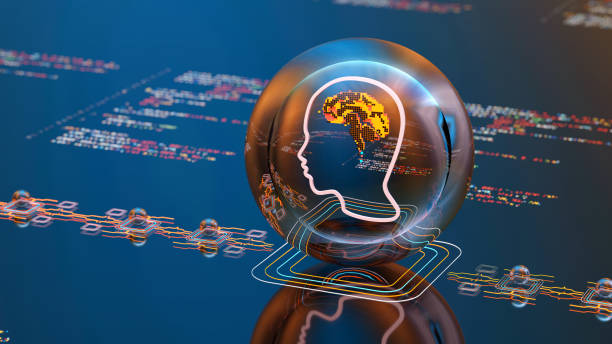What is an AI Assistant and What are its Applications?
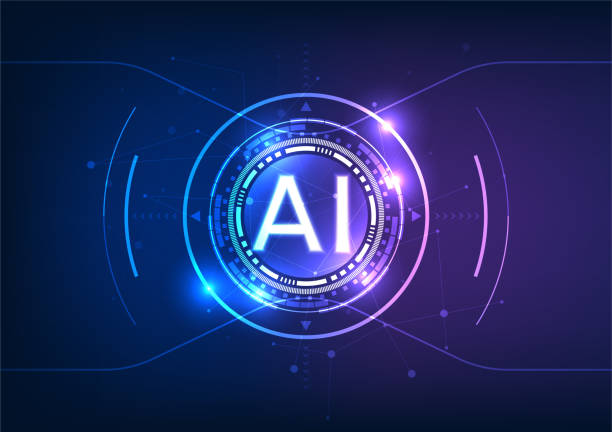
#Artificial_Intelligence (AI) is rapidly infiltrating various aspects of our lives, and AI assistants, as one of the most important manifestations of this technology, play a significant role.
An AI assistant refers to software or a system that, using machine learning algorithms and Natural Language Processing (NLP), is able to perform various tasks automatically or with human assistance.
These tasks can include answering questions, managing tasks, generating content, translating languages, summarizing texts, and many more.
In simpler terms, an AI assistant is a virtual colleague that can help you with everyday and complex tasks.
For example, an AI assistant can check your emails, schedule your meetings, summarize an article for you, or even write a blog post for you.
The applications of AI assistants are very broad and are constantly increasing.
These assistants are used in various industries, including healthcare, finance, education, and retail.
One of the most important benefits of using an AI assistant is increased productivity and time savings.
By delegating repetitive and time-consuming tasks to an AI assistant, individuals can focus on more important and creative work.
In addition, AI assistants can help improve the quality of decision-making.
By analyzing large volumes of data, these assistants can identify patterns and trends that humans might miss.
Is your company website as professional and reliable as it should be? Create an online presence that reflects your credibility and attracts more customers with professional corporate website design by Rasaweb.
✅ Build a powerful and professional image of your brand
✅ Turn visitors into real customers
⚡ Get a free consultation right now!
Types of AI Assistants and Their Key Features

AI assistants come in various types, each designed for specific applications.
In general, they can be divided into two main categories: virtual assistants and robotic assistants.
Virtual assistants are software applications that run on digital devices such as smartphones, tablets, and computers.
These assistants typically interact with the user via voice or text and can perform a variety of tasks.
Some of the most well-known virtual assistants include Siri from Apple, Google Assistant from Google, and Alexa from Amazon.
These assistants are capable of answering questions, playing music, setting reminders, controlling smart devices, and much more.
Robotic assistants are robots that, using artificial intelligence, are capable of performing physical tasks.
These robots are typically used in industrial, healthcare, and service environments.
For example, warehouse robots can move goods in warehouses, surgical robots can perform complex surgeries, and customer service robots can answer customer questions.
In addition to these two main categories, there are other AI assistants that combine the features of virtual and robotic assistants.
These assistants can be used as personal assistants at home or in the workplace and can perform a variety of tasks.
How to Choose the Right AI Assistant for Your Needs
![]()
With the wide variety of AI assistants available, choosing the right option for your specific needs can be challenging.
Before choosing, you should clearly define your needs and expectations.
Think about what you expect from an AI assistant and what tasks you want to delegate to it.
Do you need an AI assistant to help manage personal tasks or to improve productivity in the workplace?
After identifying your needs, you should review the different features of AI assistants.
Pay attention to their various capabilities, such as support for different languages, accuracy in speech recognition, personalization capabilities, and security.
Also, read reviews and feedback from other users about different AI assistants to benefit from their experiences.
Before purchasing an AI assistant, take advantage of a free trial or demo period to ensure its performance.
Some AI assistants offer specific features that may be appealing to you.
For example, some AI assistants can help you learn new languages, others can help you find the best shopping deals, and others can help you manage your finances.
Ultimately, by considering all these factors, you can choose the right AI assistant for your needs.
| Feature | Description |
|---|---|
| Language Support | The number of languages the assistant supports. |
| Speech Recognition Accuracy | The assistant’s accuracy in recognizing user speech. |
| Personalization Capabilities | The ability to customize the assistant based on the user’s needs. |
| Security | The level of security of user information by the assistant. |
Pros and Cons of Using AI Assistants
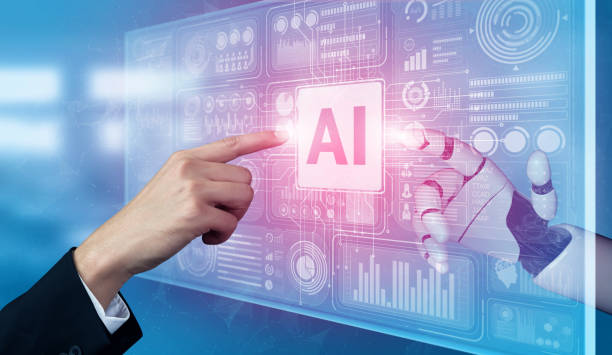
Like any other technology, using AI assistants has its own advantages and disadvantages.
Some of the most important benefits of using an AI assistant include increased productivity, time savings, improved decision-making, and reduced costs.
By delegating repetitive and time-consuming tasks to an AI assistant, individuals can focus on more important and creative work.
In addition, AI assistants can identify patterns and trends that humans might miss by analyzing large volumes of data.
However, there are also disadvantages to using AI assistants.
One of the most important disadvantages is concerns about privacy and data security.
AI assistants need to collect and process user information to perform their tasks, and this can lead to privacy violations.
In addition, AI assistants may be vulnerable to cyberattacks, and user information may be stolen.
Another disadvantage of using AI assistants is over-reliance on this technology.
If people become completely dependent on AI assistants, they may lose their skills and be unable to perform their tasks if there is a problem with the AI assistant.
Finally, the use of AI assistants can lead to the loss of some jobs.
With the automation of tasks, companies may need less manpower, and this can lead to increased unemployment.
Don’t have a company website yet and are missing out on online opportunities? With professional corporate website design by Rasaweb,
✅ Double your business credibility
✅ Attract new customers
⚡ Free consultation for your company website!
What Will the Future of AI Assistants Be Like?

The future of AI assistants looks very bright and promising.
With the increasing advancement of artificial intelligence technology, it is expected that AI assistants will become much smarter, more powerful, and more practical in the near future.
These assistants will be able to perform more complex tasks, interact more accurately with users, and automatically adapt to new needs.
One of the most important future trends of AI assistants is their integration with other technologies such as the Internet of Things (IoT) and Augmented Reality (AR).
By integrating AI assistants with the Internet of Things, users will be able to control all the smart devices in their home or workplace via voice or text.
By integrating AI assistants with augmented reality, users will be able to receive useful information about their surroundings and interact with virtual objects.
In general, it is expected that AI assistants will become an integral part of our lives in the future and will play an important role in improving the quality of life and increasing productivity.
However, it should be noted that the development and use of AI assistants should be done in compliance with ethical and legal principles to prevent potential problems and damages.
Important Points About the Security and Privacy of AI Assistants
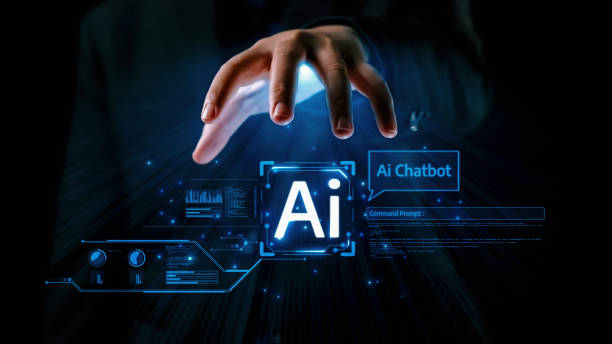
As mentioned earlier, security and privacy are one of the most important concerns about using AI assistants.
To protect your security and privacy, you should keep the following points in mind.
Before using an AI assistant, carefully read its privacy policy and be aware of how the AI assistant collects, processes, and uses your information.
Review the privacy settings of the AI assistant and adjust them according to your needs.
For example, you can limit the AI assistant’s access to your personal information such as contacts, calendar, and location.
Use a strong and unique password for your AI assistant account and change it regularly.
Be careful of phishing attacks and online scams and never give your personal information to strangers.
Regularly update your antivirus and firewall software to protect your devices from cyberattacks.
Finally, remember that no AI assistant is completely secure and there is always a risk of privacy breaches.
Therefore, you should use AI assistants with caution and do not provide them with your sensitive information.
AI Assistants in Businesses – Opportunities and Challenges
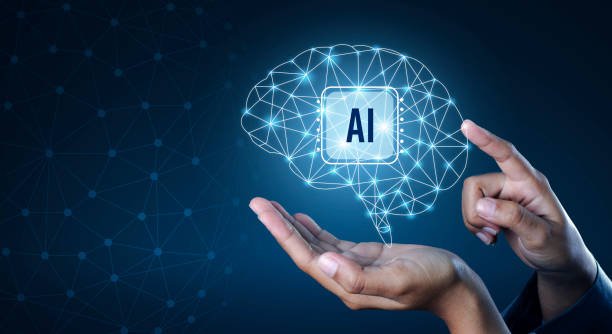
AI assistants can help businesses in various areas, including improving customer service, increasing productivity, reducing costs, and making better decisions.
In the area of customer service, AI assistants can answer customer questions, solve their problems, and direct them to the relevant departments.
This can lead to increased customer satisfaction and improved customer loyalty.
In the area of productivity, AI assistants can automatically perform repetitive and time-consuming tasks, collect needed information, and prepare analytical reports.
This can lead to increased employee productivity and reduced operating costs.
In the area of decision-making, AI assistants can identify patterns and trends that humans might miss by analyzing large volumes of data.
This can lead to better decisions and increased business profitability.
| Opportunities | Challenges |
|---|---|
| Improved Customer Service | Privacy Concerns |
| Increased Productivity | Implementation Costs |
| Reduced Costs | Need for Technical Expertise |
| Better Decision-Making | Employee Resistance to Change |
However, using AI assistants in businesses also presents challenges.
One of the most important challenges is concerns about protecting privacy and data security.
Businesses must ensure that they use AI assistants in a way that protects the privacy of their customers and employees.
In addition, businesses need to invest significantly in training their employees so that they can use AI assistants effectively.
How to Build an AI Assistant?

Building an AI assistant can be a complex project, but it is possible with the right tools and resources.
The first step is to define the purpose and application of the AI assistant.
What tasks do you want your AI assistant to perform? What type of data should it process?
After defining the purpose, you need to choose the right platform and tools.
There are various platforms for developing AI assistants, including Google Dialogflow, Amazon Lex, and Microsoft Bot Framework.
Each of these platforms has its own features and benefits.
You will also need various tools to develop the AI assistant, including Natural Language Processing (NLP) and Machine Learning (ML) tools.
After selecting the platform and tools, you need to start developing your AI assistant.
This process includes training NLP and ML models, designing the user interface, and testing and debugging the AI assistant.
Finally, you need to make your AI assistant available to users.
You can offer it as a standalone application, a website, or integrated with other applications and services.
Does your current company website present a worthy image of your brand and attract new customers?
If not, turn this challenge into an opportunity with Rasaweb’s professional corporate website design services.
✅ Dramatically improves the credibility and image of your brand.
✅ Paves the way for attracting leads and new customers for you.
⚡ Contact Rasaweb now for free and expert consultation!
AI Assistants and Their Impact on the Future of Work
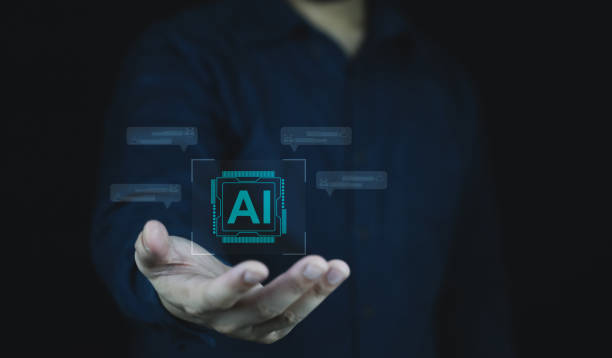
AI assistants can have a profound impact on the future of work.
On the one hand, they can lead to increased productivity, reduced costs, and the creation of new job opportunities.
On the other hand, they can lead to the loss of some jobs and increased economic inequality.
Actions must be taken to benefit from the benefits of AI assistants and reduce their negative effects.
First, significant investment must be made in education and training so that people can acquire the skills needed to work in the new world.
Second, policies must be adopted that protect workers’ rights against the negative effects of automation.
Third, we must look for ways to use AI assistants to create new job opportunities and improve the quality of life.
The future of work with AI assistants is uncertain, but with proper planning and action, we can ensure that this technology benefits everyone in society.
Useful Resources and Tools for Learning More About AI Assistants
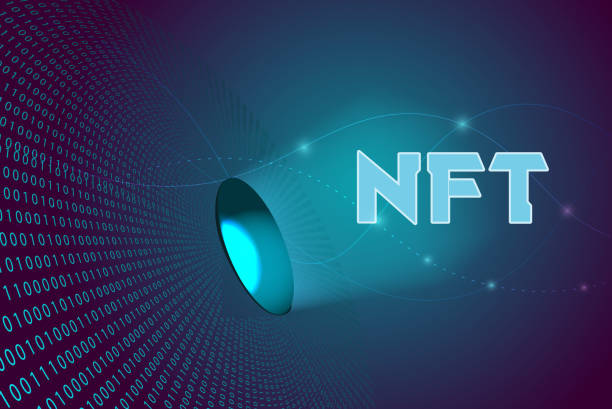
If you are interested in learning more about AI assistants, there are many resources and tools available.
You can use online courses, books, articles, and blogs to learn more about this technology.
You can also use AI assistant development platforms such as Google Dialogflow, Amazon Lex, and Microsoft Bot Framework to experiment and build your own AI assistants.
In addition, you can attend conferences and seminars on artificial intelligence and AI assistants to meet experts in this field and stay up-to-date on the latest developments in this technology.
By using these resources and tools, you can increase your knowledge and skills about AI assistants and become an expert in this field.
An AI assistant can be a good friend to you!.
FAQ
| Number | Question | Answer |
|---|---|---|
| 1 | What is an AI assistant? | An AI assistant is a software program that uses artificial intelligence to help users perform various tasks, provide information, or automate processes. |
| 2 | What are some examples of AI assistants? | Popular examples include Siri, Google Assistant, Alexa, and Cortana. |
| 3 | How does an AI assistant work? | AI assistants typically use natural language processing (NLP) to understand user voice or text commands and machine learning to improve their performance. |
| 4 | What are its capabilities? | Capabilities such as answering questions, setting reminders, playing music, sending messages, controlling smart devices, and providing weather information. |
| 5 | How is data security in AI assistants? | Data security is a major concern. Companies strive to protect user data using encryption and privacy policies, but users should always be aware of potential risks. |
| 6 | Can AI assistants understand emotions? | Currently, AI assistants cannot understand real emotions, but they can recognize the tone and words associated with emotions and provide appropriate responses. |
| 7 | What are the applications of AI assistants in the workplace? | In the workplace, they can be used for scheduling meetings, managing emails, searching for information, and even helping to write draft documents. |
| 8 | What will the future of AI assistants be like? | In the future, they are expected to be smarter, more personal, and have more capabilities, so that they can actively anticipate user needs and even help with complex decisions. |
| 9 | What is the difference between an AI assistant and a chatbot? | An AI assistant typically has a wider range of capabilities and interactions (often voice-based), while chatbots typically focus on specific tasks in a text-based environment. |
| 10 | How can one make the best use of an AI assistant? | For optimal use, one should be familiar with its voice commands and capabilities, sync it with other devices, and allow it to learn how you use it through interactions. |
And other services of Rasaweb advertising agency in the field of advertising
Smart SEO: A new service for increasing digital branding by customizing the user experience.
Intelligent Digital Advertising: Designed for businesses looking to increase site traffic by customizing the user experience.
Smart Reporting: An effective tool for online growth with the help of intelligent data analysis.
Intelligent Advertising Campaign: A new service to increase sales by intelligent data analysis.
Smart Social Media: A professional solution for digital branding with a focus on optimizing key pages.
And more than hundreds of other services in the field of Internet advertising, advertising consulting and organizational solutions
Internet Advertising | Advertising Strategy | Advertising Report
Resources
[object Object],[object Object],[object Object],[object Object]
? Lead your business on the path to digital success with Rasaweb Afrin Digital Marketing Agency. From custom website design to SEO optimization and campaign management, we are by your side every step of the way to have a powerful and impactful presence in the online space. Contact us for a consultation and to start the digital transformation of your business.
📍 Tehran, Mirdamad Street, next to Central Bank, South Kazerun Alley, Ramin Alley No. 6
“`

